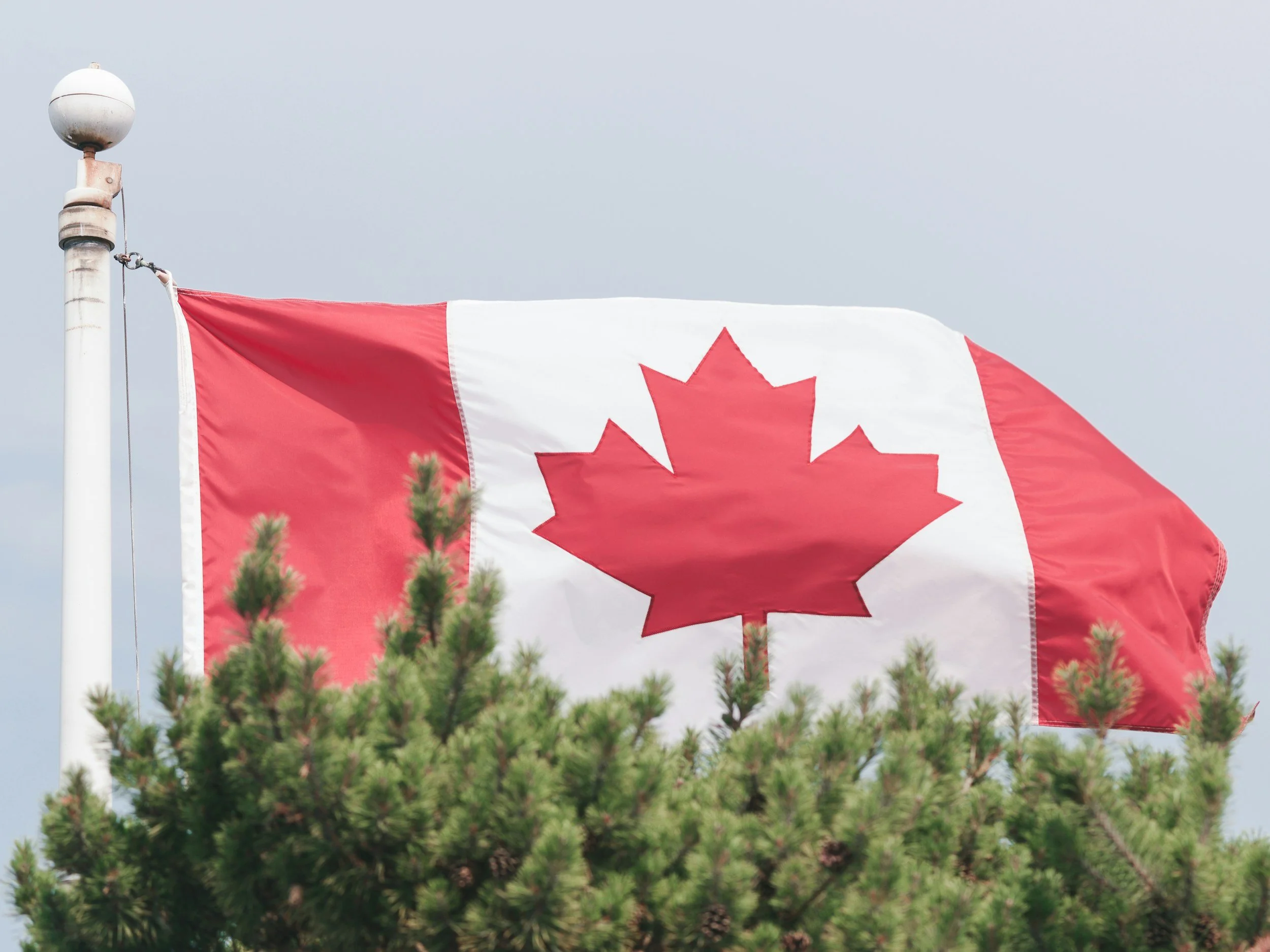
Do Canadian Municipalities Have a Hidden Ideological Pulse?
Are Canadian municipal politics simply about fixing potholes and managing traffic, or does ideology shape municipal behavior more deeply? In contrast to the U.S. and several other federations, Canadian municipal elections are overwhelmingly non-partisan. Fewer than one in five municipal officials run on party slates. This fact leads many to infer that Canadian city halls are free from the left-right ideological divide that exists at higher levels of government.

The Local Politics of Public Health
In this two-part miniseries, UAR Remixed speaks with several authors from the journal’s recent symposium, “The Intrinsic Relationship between Local Politics and Public Health.” We speak with the authors about their research, which covers a wide breadth of topics and ideas at the intersection of public health and politics in local contexts. In Part 1, we meet the authors and learn more about the big questions and pressing issues that prompted them to do this research. In Part 2, we’ll be thinking about the inherently political nature of public health policy, and how our present political climate is affecting public health research and institutions at the local level.

Security is on the upswing; who should get the credit?
Every three months, the Mexican National Statistics Institute (INEGI) publishes information on public safety perceptions for Mexico’s 96 most populated cities. About three years ago, in July 2022, right after INEGI published this data, the former Mexico City head of government and now president Claudia Sheinbaum, turned to Twitter to share some great news. She tweeted that perceptions of public safety continued to improve in the city thanks to her public safety and policing strategies. Several hours later, borough mayor Santiago Taboada made a similar claim (for context, Mexico City is divided into sixteen boroughs, each with its elected borough mayor). Taboada tweeted that residents of his borough ranked it as one of the safest in the country thanks to his policing model, which he called Blindar BJ or Protect Benito Juarez. For those familiar with Mexico City, Taboada’s tweet does not really make sense and is somewhat puzzling, given that security in the city is provided by the Mexico City police, an entity that was then accountable to Sheinbaum.

Local self-government against the state
The re-election of Donald Trump worries many people about the condition of democracy in the US. How much pressure from executive power can the country withstand? Yet with America’s rightward turn, authoritarianism is less an exception than a rule in the Global North. In Austria, the Freedom Party won the elections in 2024. The Netherlands had a similar outcome in 2023, with Geert Wilders’ success, and Italy has been governed by Brothers of Italy since 2022. The rightward turn in the West was initially taken in eastern Europe in the 2010s, where the Right rose to power in Hungary, Poland, recently joined by Slovakia.

The Economic Background of City Councilmembers
Who are city councilmembers? One image might resemble a national politician — someone with strong partisan attachments, perhaps a lawyer by trade, who runs for office with ambitious policy goals. Alternatively, we might picture a local community member — someone well-known in their neighborhood, running for the part-time role not as a steppingstone to higher office, but to serve their community. Perhaps council is simply a natural next step in their career path. They might be elected because Republicans and Democrats alike trust their understanding of local issues and their commitment to schools and public safety.
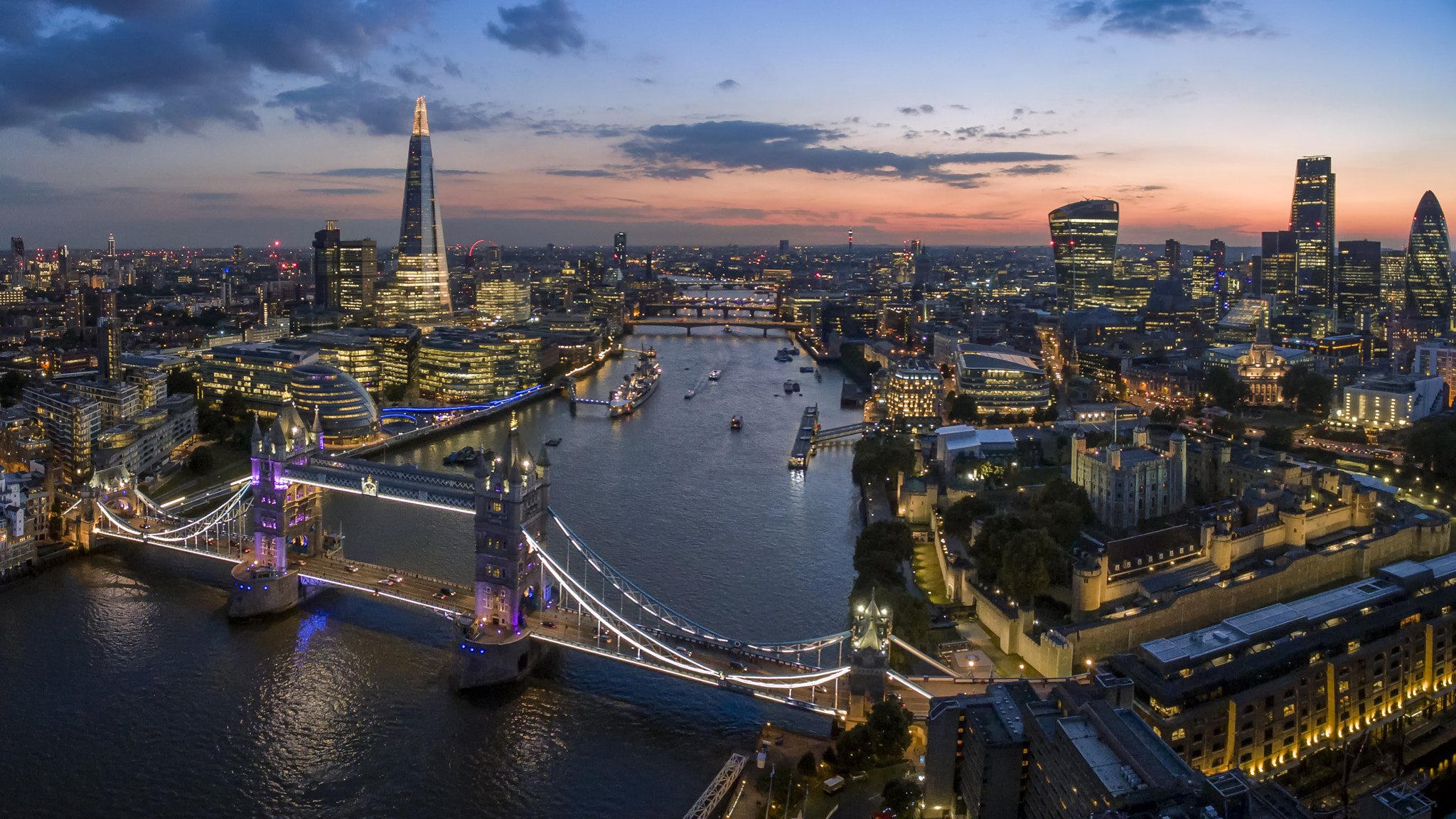
60.6
Issue 6 of our anniversary volume features an introductory essay by managing editors Christina Greer and Tim Weaver. Featuring Zoltan Hajnal and Jessica Trounstine's 2013 article, “What Underlies Urban Politics? Race, Class, Ideology, Partisanship, and the Urban Vote,” along with a new essay by Hajnal and Trounstine reflecting on their influential work today.

Issue Accountability in Non-Partisan Municipalities: A Case Study
Do voters know what their municipal councillors actually do on council? And if they do know what their councillors are up to, does this knowledge help them keep councillors accountable? Issue accountability – the extent to which elected representatives are rewarded or punished by voters for their legislative actions in office – is fundamental to how we often think about democratic representation, but this form of accountability requires that constituents are aware of their representatives’ actions in office. To what extent do voters have this kind of awareness?

Social ties, community events, and civic engagement in urban settings
Our research focuses on the role of social ties in the development of civic norms within urban communities. Previous political science research finds that socioeconomic resources and “strong” social connections to friends and family members increase political participation. However, most interactions in urban settings occur between “weak” social ties who include neighbors, colleagues, acquaintances, and even strangers. Despite their potential importance, little is known about the political consequences of informal social interactions with neighborhood-based ties in shared urban spaces. How do these casual interactions with weak social ties shape political participation?
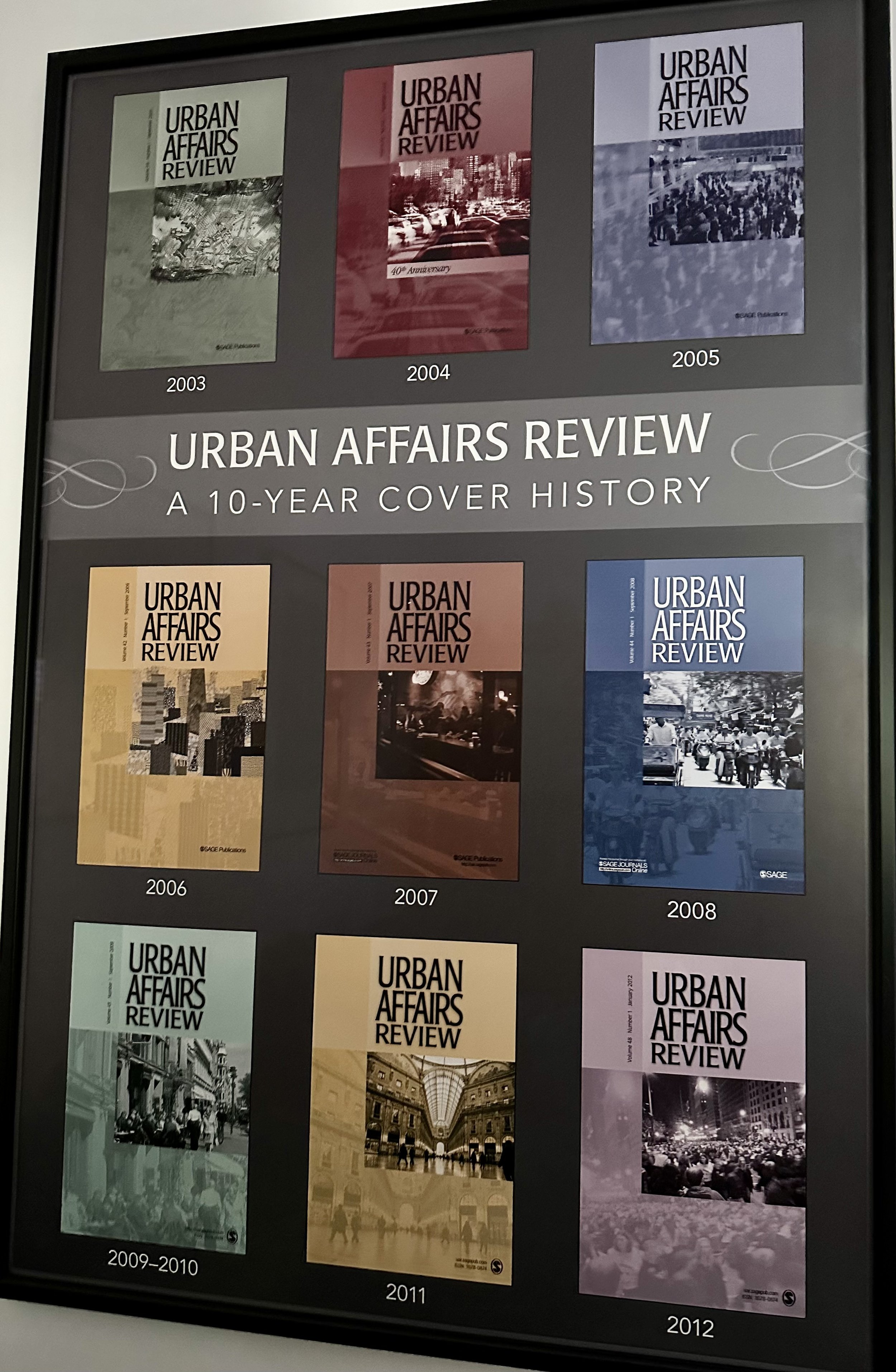
60.5
Issue 5 of our anniversary volume features an introductory essay by managing editors Maureen Donaghy (Rutgers University-Camden) and Yue Zhang (University of Illinois-Chicago). Featuring Jefferey Sellers’ 2005 article, “Re-placing the Nation,” along with a recent essay by Dr. Sellers on urban comparative politics. We’re also pleased to share a wonderful essay by former UAR editors Susan Clarke and Michael Pagano that reflects on their long tenure as editors and the changes in the field.

Local Social Service Organizations and their Relationship to Disadvantaged Neighborhoods
In our empirical study on “Radicalizing Spaces,” we examine whether disadvantaged neighborhood effects – operationalized in our case as susceptibility to radicalization – can be mitigated or even prevented by LSSOs. We focus our analysis on susceptibility to Islamist ideologies. The study was conducted in three German cities: Dortmund, Bonn, and Berlin. The survey was designed so that conclusions could be drawn about almost every district in each city. The topics of the survey focused on susceptibility to radicalization, participation in LSO services, and in-dividual attitudes and behaviors.

Spotlighting the Economy
In this article, “Spotlighting the Economy: Media Coverage and Mayoral Evaluations,” Burke shows that local newspapers are opinion leaders in the cities that they serve. I demonstrate that local newspapers help citizens hold their local governments accountable for economic performance. While a great deal of political science research has found that Americans hold their national government accountable for economic performance, only recently have scholars begun to examine the relationship between economic performance and citizens’ support for their city governments.
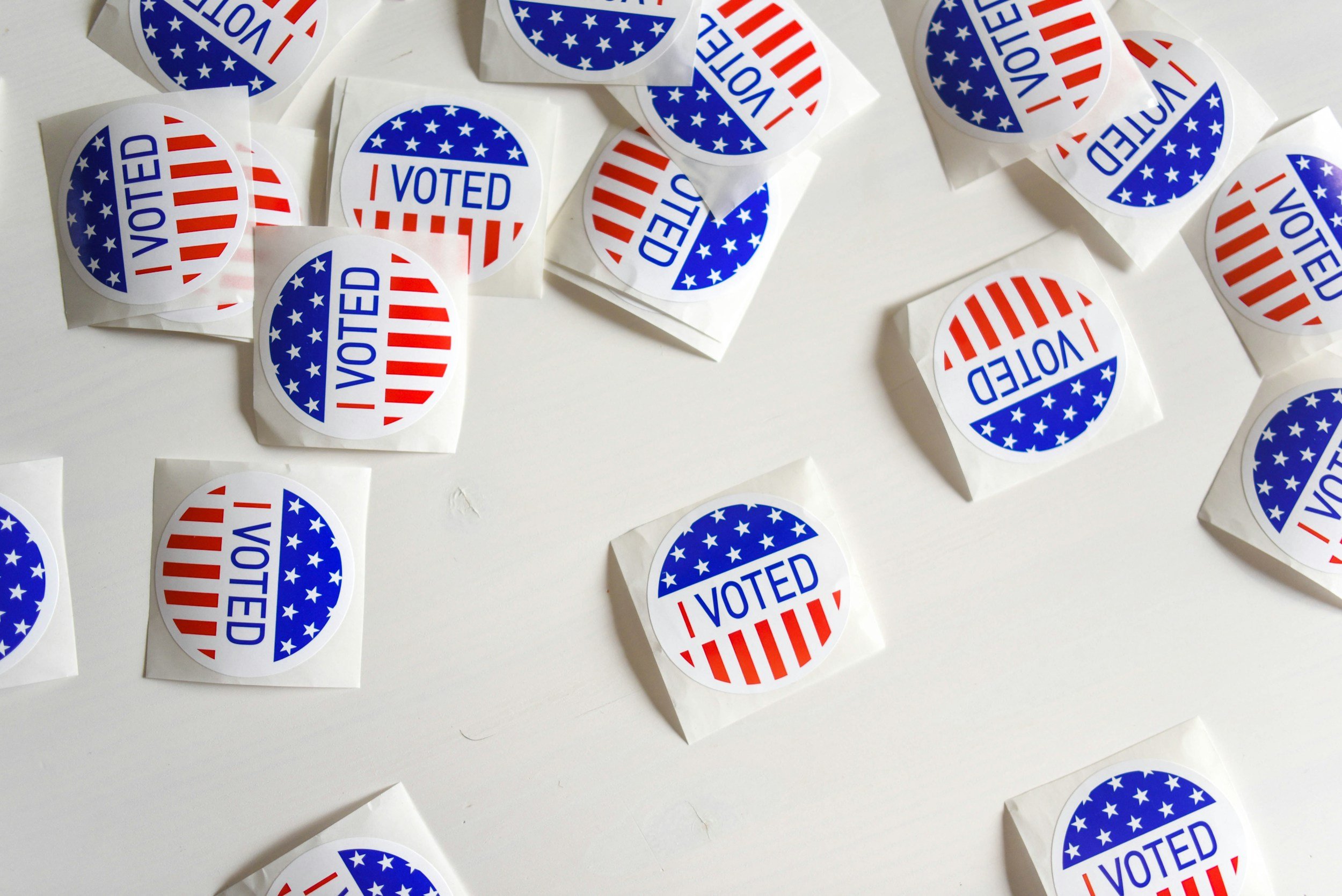
UAR Reading List: Gender, Race, and Electoral Politics
Following this weekend’s announcement that President Biden would not seek election, and the all-but-certain nomination of Vice President Kamala Harris secured for the Democratic Party, we assembled a reading list from the UAR archive. These articles address the issues of gender, race, and electoral politics (and their intersections) through the lens of urban studies and draw on a diverse range of methods. As the presidential election approaches, we hope to continue building out this list and solicit new research to examine these themes.

60.4
Issue 4 of our anniversary volume features an introductory essay by managing editors Maureen Donaghy (Rutgers University-Camden) and Yue Zhang (University of Illinois-Chicago). We revisit Larry Bennett’s “Harold Washington and the Black Urban Regime,” which was published in Urban Affairs Review in 1993.

Red, Blue, and Going for Gold
Hosting the Olympics in U.S. cities comes with unique challenges regarding planning and execution, given that due to the federalist system of government the responsibility of planning and hosting the games largely falls on state and local governments (Schimmel 2006). Many city officials now question the benefits of hosting the Olympics, given that many games have run over budget and residents of potential host cities have organized against the games, including recent bids from Boston and Chicago. Residents of Olympic host cities and potential host cities have expressed concerns regarding increased public spending, construction of Olympic facilities altering the public landscape, overcrowding, and gentrification of urban neighborhoods.

Tribal Politics or Discerning Voters?
The substantial influence of partisanship on voting behavior at the national level is widely studied and agreed upon. But to what extent does partisanship influence voting behavior at the local level? While some research indicates local elections may be similar to national elections in terms of partisan influence, there are reasons to be skeptical. Local elections typically are nonpartisan; even if they are not, issues may not fall neatly along party lines.
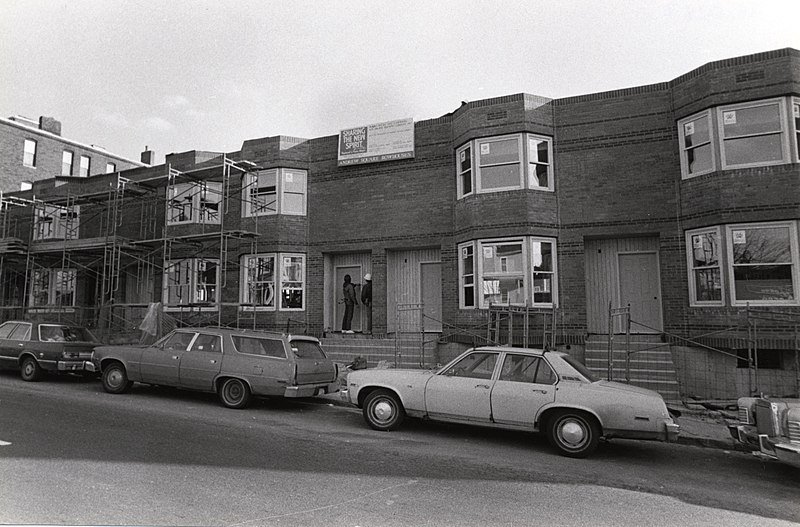
60.3
Issue 3 of our anniversary volume features an introductory essay by managing editors Christina Greer (Fordham University) and Tim Weaver (University at Albany). We revisit Elinor Ostrom’s “The Social Stratification-Government Inequality Thesis Explored,” which was published in Urban Affairs Review in 1983.

Landscapes of Remunicipalization
After four decades of stalemated debates about privatization there is a newer and more refreshing conversation on the block: remunicipalization. Also known as “reverse privatization” and “insourcing,” remunicipalization refers to a process of returning services back to state ownership and management after a period of private sector control.
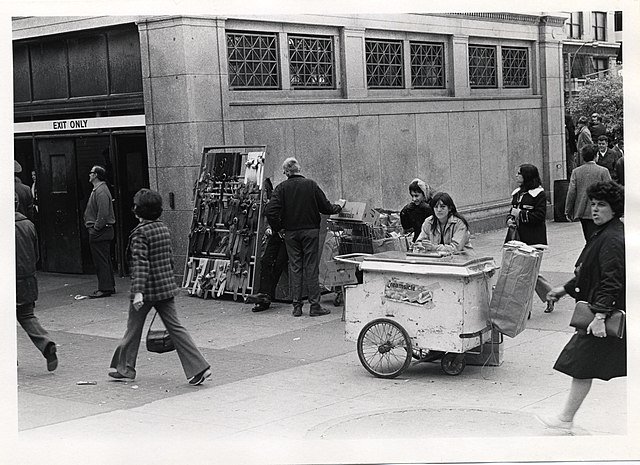
60.2
Issue 2 of our anniversary volume features an introductory essay by managing editors Richardson Dilworth (Drexel University) and Mara Sidney (Rutgers University-Newark). We revisit Michael Lipsky’s “Street-Level Bureaucracy and the Analysis of Urban Reform” published in Urban Affairs Quarterly in 1971.

Women’s Representation in Canadian Municipal Politics
The share of women in Canadian municipal politics is just thirty-one percent—far from parity. Yet it varies widely across municipalities. What explains why sixteen percent of councils have no women on them while another sixteen percent have achieved gender parity? Such differences matter because research shows that elected women tend to prioritize issues that are distinct from men, contributing to better representation of many social issues. And young women who see themselves reflected on their councils are more likely to consider running for office themselves someday.

Defying Stereotypes, Populism and Neoliberal Discourse
Our paper describes and records some of the innovative ways municipalities in Québec reacted to the COVID pandemic. It is probable that many other municipalities and local authorities reacted in similar ways in other jurisdictions. The paper also provides some elements to help understand and describe in what way municipalities are being innovative, and how this compares to, and differs from, private-sector innovation.